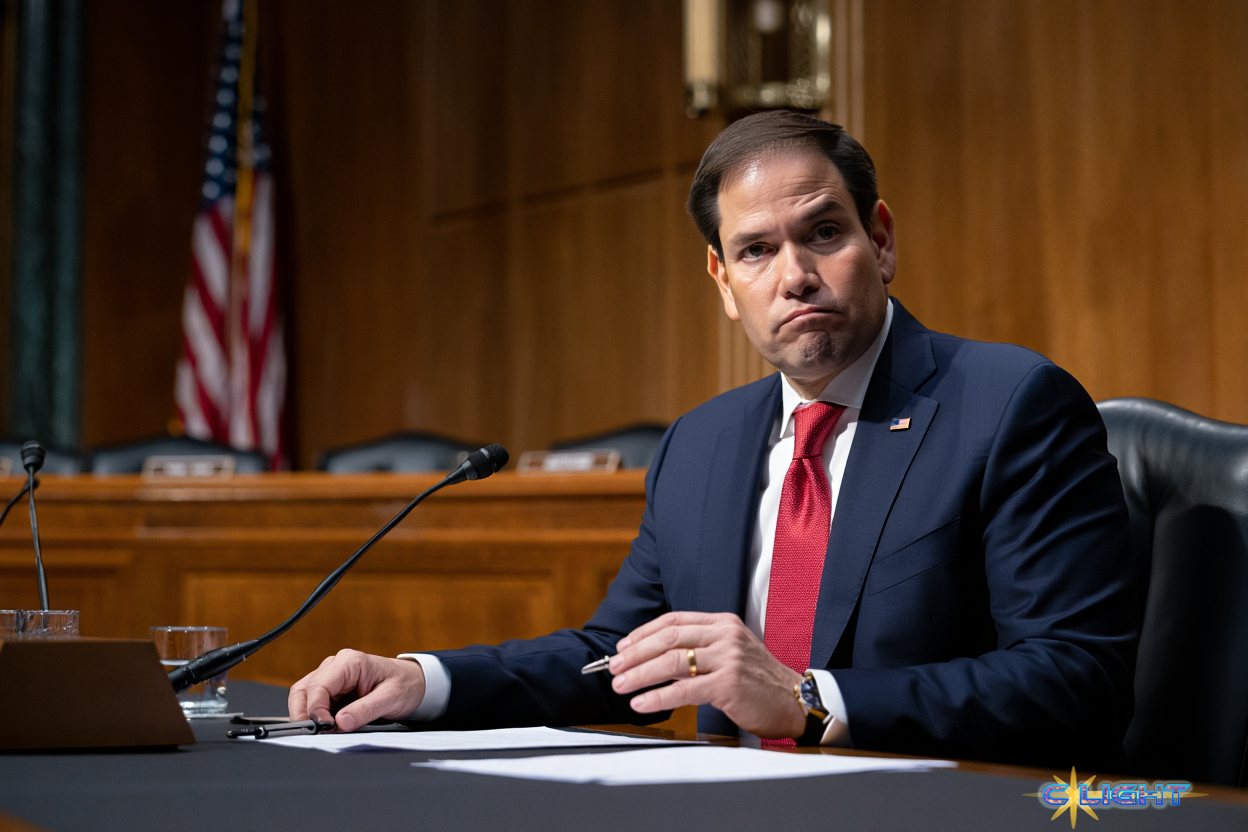“When I have a problem, I call up Marco. He gets it solved,” President Felonious Punk recently declared, a stark endorsement that encapsulates Secretary of State Marco Rubio’s pivotal role in this administration. But Rubio is far more than the nation’s chief diplomat; he’s a man of many hats, and seemingly, many hatchets. As acting national security adviser, USAID administrator, and even acting archivist of the United States, on top of leading the State Department, Rubio has amassed an unprecedented concentration of power, positioning him as the key enforcer of Punk’s agenda through what can only be described as a “slash-and-burn” approach to government and established norms.
The sheer breadth of Rubio’s responsibilities is historic, drawing comparisons to Henry Kissinger’s dual role in the 1970s, though even that pales against Rubio’s current portfolio. This consolidation isn’t merely a testament to his capacity; it’s a strategic enabler. It allows for swift, decisive, and often deeply controversial actions, bypassing traditional bureaucratic inertia and, as his recent Senate testimony suggests, even judicial scrutiny when deemed inconvenient.
The “slash” aspect of Rubio’s tenure was on full display during his feisty appearances before Senate committees this past Tuesday. He vigorously defended a budget request that carves $20 billion from what he termed “duplicative, wasteful, and ideologically driven programs.” This includes the effective dismantling of the U.S. Agency for International Development (USAID), once a nearly $40 billion-a-year entity, now being folded into the State Department under his direct control. A new, leaner “$2.9 billion America First Opportunity Fund” is set to replace decades of established foreign aid structures, redirecting assistance based on narrowly defined U.S. interests. Rubio also championed the administration’s hardline immigration crackdown and its controversial policy of prioritizing white South African refugees while largely blocking non-white admissions from elsewhere. These aren’t subtle reforms; they represent a fundamental reshaping, a tearing down of existing frameworks.

But it’s the “burn” element—the apparent willingness to torch established norms and checks and balances—that truly solidifies Rubio’s role as Punk’s ‘hit man.’ In a particularly inflammatory exchange with Senator Chris Van Hollen concerning the mistaken deportation of Kilmar Abrego Garcia (a case where the government admitted its error), Rubio didn’t just repeat disputed claims about Garcia. He launched into an astonishing assertion of executive impunity from judicial oversight.
“No judge, and the judicial branch, cannot tell me or the president how to conduct foreign policy,” Rubio declared, adding, “No judge can tell how I have to outreach to a foreign partner or what I need to say to them. And if I do reach to that foreign partner and talk to them, I am under no obligation to share that with the judiciary branch.” This statement, as critics immediately pointed out, not only misrepresents the basic structure of the U.S. government (which has three co-equal branches) but also signals a profound disregard for the Constitution’s separation of powers. It paints a picture of an executive branch, as one analysis put it, that sees itself as an “absolute monarchy,” unbound by the courts—a view seemingly emboldened by last year’s Supreme Court ruling on presidential immunity.
Rubio’s retort to Senator Van Hollen’s criticism that he regretted voting for Rubio’s confirmation—”First of all, your regret for voting for me confirms I’m doing a good job”—further underscores his confrontational style, perfectly aligned with an administration that thrives on disruption. He “gets things done” for President Punk, whether it’s deflecting criticism on engagements with Russia, managing the fallout from the Gaza war, or pushing through drastic budget cuts, precisely because he appears willing to operate with a singular focus on the administration’s objectives, regardless of traditional diplomatic or legal constraints.

While Secretary Rubio insists he is not “dismantling American foreign policy” or “withdrawing us from the world,” his actions and rhetoric suggest a radical overhaul is well underway. By consolidating immense power under an array of official hats and demonstrating a willingness to challenge or bypass established oversight mechanisms, Marco Rubio has become the indispensable operative for an administration bent on fundamentally reshaping America’s role at home and abroad. The question for the nation is not just whether Marco “gets it solved,” but what precisely is being “solved”—and what foundational principles are being slashed and burned in the process.
Discover more from Clight Morning Analysis
Subscribe to get the latest posts sent to your email.










